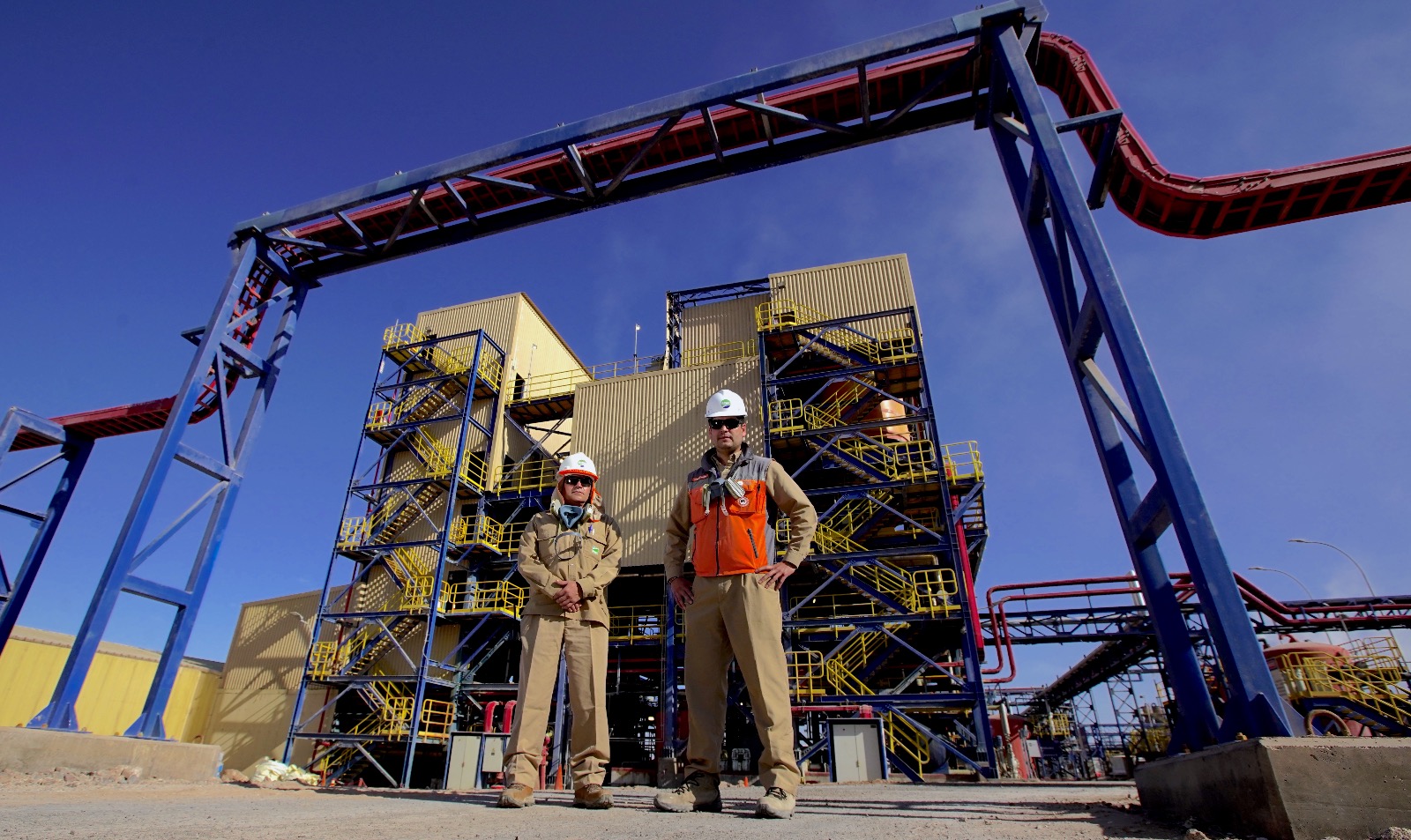News
SQM’s Nitrates Iodine Division will use seawater in its production processes

The world leader in the production of specialty fertilizers and iodine is implementing several initiatives aimed at the protection and efficient use of water resources. The project includes delivering water to families in Chanavayita, Caramucho and Cáñamo coves.
At SQM, the responsible use of water is an important aspect of the company’s production processes. In this regard, the projects area of SQM’s Nitrates Iodine Division is developing a project known as Tente en el Aire (TEA), located at the Nueva Victoria site in the municipality of Pozo Almonte, Tarapacá Region.
The project is aimed at adding new mining areas to boost production, while adding the use of seawater to the production process, which will double iodine production capacity. These 900 liters per second of seawater will allow the plant to produce around 23,000 tons of iodine without using inland water for this increase.
This was explained by Julio Ibáñez, H2V and EE Project Manager at SQM’s Nitrates Iodine Division: “TEA will bring seawater from the Patillos area to Pampa Hermosa, where it will be stored in a reservoir and later distributed to the different operations.”
However, this project will benefit not only the company, but will also provide fresh water to the surrounding communities. “As part of our commitment to the environment, this project also includes delivering fresh water to the Chanavayita, Caramucho and Cáñamo coves where we will build an osmosis facility, providing the community with 260m3 of fresh water per day. This plant will not generate waste because it is designed to reintroduce the salt discharges to the seawater system to be used in SQM’s production process,” he explained.
Chilean Desalination Association
In addition to implementing this project, the company recently joined the Chilean Desalination and Water Reuse Association (Asociación Chilena de Desalinización y Reúso de Agua or ACADES), which arose as a coordinated response between different organizations to promote the development of water reuse and desalination industries as alternative and sustainable sources of inland water.
In this regard, Rafael Palacios, executive vice-president of ACADES, said: “For ACADES, it is crucial that the mining industry be part of the process, since today it represents more than 85% of the country’s installed desalination capacity, and the challenges we face in terms of water security can only be addressed collaboratively.”
The representative from ACADES added: “In the search for new water sources, companies like SQM are essential to lead the water transition process that will take us from inland sources to non-conventional sources and, from there, contribute to public debate, generating multi-sector alliances and sharing knowledge.”
The H2V and EE Project Manager at SQM’s Nitrates Iodine Division explained that being part of this association is extremely important, as it will facilitate knowledge and interaction with the different programs and initiatives that are being carried out to properly manage water resources.
“Being part of this association will keep us aprised of all the desalination projects that exist, but we are also very motivated to promote new initiatives. One of them is the use of shared infrastructure, which seeks to generate alliances with other companies for the construction of common water lines, reducing the impact on the environment and generating greater benefits,” the executive explained.
World leader in iodine production
SQM has the largest iodine plant in the world, located in Tarapacá. In 2023 SQM achieved record production volumes of more than 13 thousand, bringing its share of the world market to close to 35%. This made Chile and SQM the world leader in this 99.9% pure product, which is key in industries such as technology, health and agriculture.
